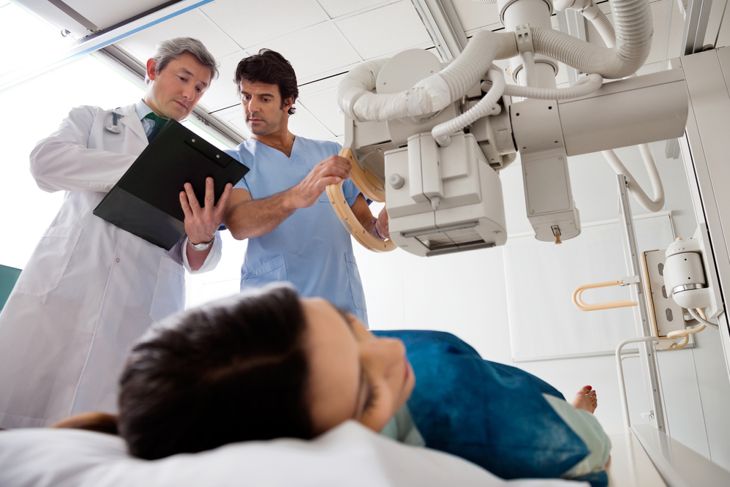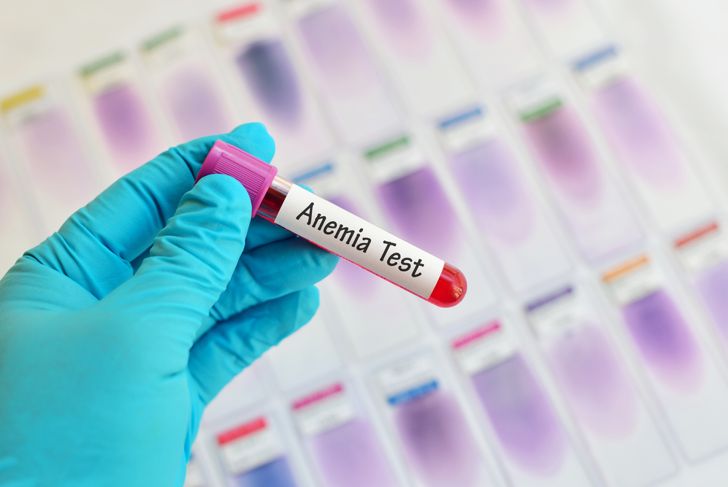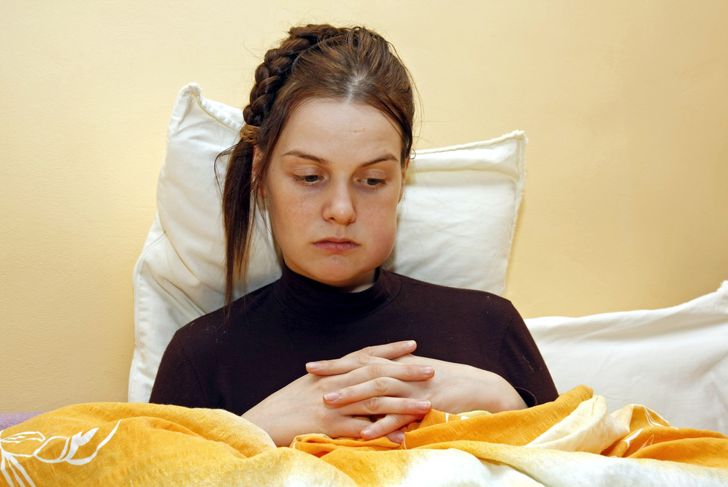Although the symptoms of Burkitt’s lymphoma are distinctive, the disease moves so quickly through the body that they may all seem to appear once. Lymphoma cells divide rapidly and can take over in just a couple of weeks. The symptoms may be in several areas of the body by the time you are diagnosed because of the mercurial nature of cancer. There are a few different types of Burkitt’s lymphoma including sporadic, endemic, and HIV-related Burkitt’s lymphoma, but the symptoms are all relatively the same. If you experience any of these symptoms, visit your family doctor immediately for a proper examination. The sooner you are diagnosed, the better chance you have of a full recovery.
Swelling
This is the number one symptom of Burkitt’s lymphoma because your lymph nodes are infected. The swelling may appear in one or more areas of your body depending on what lymph nodes need medical attention. Lymph nodes are located in your neck, collarbone, armpits, and groin. The tonsils and thyroid are known to be affected by Burkitt’s lymphoma and can double in size within hours. You can self-exam these spots to determine if the small, round glands are larger than usual. If you suspect they are swollen, then you should seek the expert opinion of a physician.
Abdominal Pain
Although the lymph nodes tend to enlarge as a result of Burkitt’s lymphoma, the abdomen will collect fluids and cause a painful, swollen stomach. The accumulation of such fluids in the stomach is known as ascites. It is a symptom of a liver disease called cirrhosis as well as other types of cancers. However, the fluid buildup in the abdomen is evident, especially in children. Extreme bloating and continuous pain will send you or your adolescent to the emergency room. Upon further examination, the doctor will be able to diagnose your condition and create a treatment plan.
Bowel Problems
People with Burkitt’s lymphoma tend to suffer from moderate to severe bowel problems. Bleeding from the bowel or dealing with bowel obstruction are common symptoms. A blockage occurs when the cancerous tumors block either the small or large intestines. It prevents food and fluids to flow throughout the body, which leads to intense pain and bloating. You may also experience diarrhea depending on whether or not the intestine is blocked entirely or partially. If you are feeling a painful sensation that comes and goes mixed with constipation, you should visit your family doctor.
Flu-like Symptoms
A fever paired with tiredness may plague you for days or weeks at a time. If this were the only symptom of Burkitt’s lymphoma, it would be difficult to pinpoint the disease. However, this is one of the many signs associated with the cancerous tumor. In fact, most cancers make patients feel sick in general because cancer attacks healthy cells. It is typical for patients with Burkitt’s lymphoma and other types of cancer to feel fatigued on a regular basis.
Night Sweats
If you are a woman who has already undergone menopause, then you are probably familiar with night sweats as they are a symptom of the changing of the age. They are also an underlying cause of a more serious illness. Waking up in the middle of the night soaked in perspiration is uncomfortable, to say the least, but it is not inherently a red flag for Burkitt’s lymphoma. Night sweats are often associated with flu-like symptoms, too, along with diarrhea, weight loss, and localized pain. If you are having these types of episodes, you need to contact your doctor.
Loss of Appetite / Weight Loss
Anytime people experience a rapid change in weight, either gaining or losing it; they should make an appointment with their physician. It is unhealthy to drop pounds or put them on too quickly. Both may signify a medical condition that requires professional help. Losing weight along with the loss of appetite is a symptom of Burkitt’s lymphoma. It does not matter your age or body type, if you are not consuming foods like you used to nor have the desire to eat, you should consult with a medical provider to create a healthy nutritional guide for the morning, noon, evening, and night.
Extranodal Sites
During stages II and III of Burkitt’s lymphoma, cancer will spread. As it metastasizes to other organs, the symptoms will vary depending on the location of the tumor. Common extranodal sites, which are outside of the lymphatic system, include the liver, kidneys, ovaries, and breasts. You will experience swelling and pain in these parts, too. Hopefully, you are already on a treatment regimen and can prevent further infections. The faster you are diagnosed, the quicker you can recover. Any unusual pain or swelling should be checked out by your doctor right away.
Low Blood Count
Bone marrow that is infected with Burkitt’s lymphoma will cause your blood count to lessen. This happens in stage IV of cancer. A low blood count leads to an assortment of problems including anemia. Anemic people do not have a high enough number of red blood cells to carry an adequate amount of oxygen throughout the body to all the tissues and organs. Anemia leaves patients tired and weak. Patients with low platelets tend to bruise easier and bleed longer compared to people with a high amount. Shortness of breath is another symptom of the cancerous tumor, which also causes tiredness.
Central Nervous System Problems
Lymphoma that spreads to the spinal cord or brain poses its own set of health risks because of the placement. A common trait during stage IV, a patient may deal with a different pattern of symptoms including headaches, seizures, confusion, and the inability to concentrate. However, this occurs only if Burkitt’s lymphoma affects the central nervous system. If you are dealing with these types of symptoms, you will undergo tests to determine the location, size, and severity of lymphoma. There are recovery options available.
Distortion of Facial Bones
Both sporadic and endemic Burkitt’s lymphoma can affect the jaw, especially in children. The cancerous tumors can grow where permanent teeth are trying to form. With both types, the facial bones become distorted because of the rapid growth of the lymph nodes. The swelling in the face is severe. Although the enlarged lymph nodes may or may not be tender to the touch, they can double in size overnight. If you or your child has excessive swelling of the face or a noticeable displacement of the jaw bone, go to the emergency room immediately. You can test for lymphoma through a standard blood test as the cells can be seen under a microscope sample. As with other kinds of cancer, you cannot catch lymphoma or pass it on to others. Burkitt’s lymphoma is not linked to genetics or inheritance, either. If you already have a weakened immune system because of HIV or another infection, you may be more susceptible to developing Burkitt’s lymphoma.

 Home
Home Health
Health Diet & Nutrition
Diet & Nutrition Living Well
Living Well More
More




















